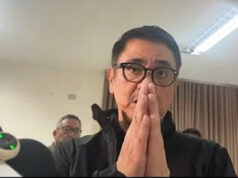MUCH HAS been said about the viral TikTok video of a public school teacher angrily scolding her students for their behavior, telling them that they have “forgotten boundaries” and have habitually disrespected her. The teacher went to the extent of using words to vent her anger and probably even her frustration to her students by saying they were “ugaling iskwater” (behaving like a squatter) and “ingrato” (ungrateful).
Although the teacher was issued a show-cause order and given 72 hours to explain her actions, Vice President and Education Secretary Sara Duterte said that no penalty would be imposed on her. Duterte simply advised the teacher to “take a moment to calm down when feeling frustrated.”
You can bash the teacher all you want and call her unprofessional, and even question her motive for going live while scolding her students; but do not forget that at the heart of this brouhaha is the need to re-evaluate the need for discipline as an essential and crucial ingredient for learning to actually happen inside the classroom.
For the record, every single school administrator and teacher support and believe in the role of the state to protect all children wherever they may be, especially when they are in schools, considered as their second homes. In fact, both public and private schools are always guided by the Department of Education’s Child Protection Policy, the Anti-Child Abuse Law under Republic Act 7610, and other related policies that aim to protect children from all forms of abuse. Sadly, teachers find themselves in a position where their hands are tied, and are always afraid to instill discipline in their students because these policies have been, over the years, used against them. Teachers always find themselves at the receiving end of false accusations, humiliation, harassment, intimidation and even physical threats for fulfilling their roles as “second parents” to their learners.
During our time, it was a big no-no for our parents to be called to the principal’s office because we were unruly or we did something wrong. They would apologize profusely, believing that our rude behavior in class was some sort of a shortcoming on their part as parents. Today, some parents resort to social media to air their “side of the story” and even worse is when they go straight to that infamous television program hosted by one of our senators, for sensationalized coverage and added media exposure for the ratings.
Sometimes I couldn’t help but think that we have been trying to overly protect our students that any form of discipline can now be interpreted as a form of child abuse. It is always how the child reacts, responds, interprets and what the child feels about a teacher’s words or actions. It is never about why the words are said, why the action is resorted to and what message the words and actions intend to accomplish.
Admittedly, there are some erring teachers who have definitely crossed the line by inflicting physical or emotional harm on their students. But these are the exceptions rather than the rule. Gone are the days when parents did not mind if their child was asked to stand in class, or sent out of the room for being unruly, and yes, given a failing mark if their child failed to submit the class requirements.
Undoubtedly, a student’s behavior in school is a reflection of how he or she was raised at home. Many of the important values that define us as individuals are in fact, first learned at home. Teachers only reinforce these values by integrating them with the different lessons and activities in school.
It will definitely be an uphill climb for teachers when they encounter students who have not been taught with these basics. Parents expect teachers to be welcoming because schools must always be inclusive. Parents expect teachers to fulfill what they failed to do because well, that is what they are supposed to do in the first place. So, when teachers, the so-called second parents, commit an honest mistake or a “spur of the moment” decision, shouldn’t the first and real parents or guardians be the first to understand them?





